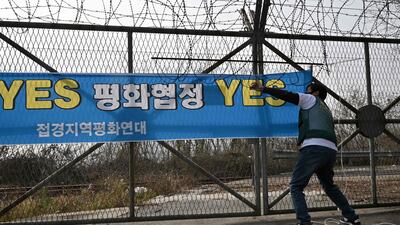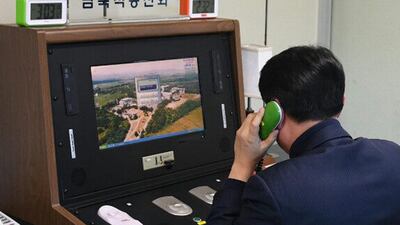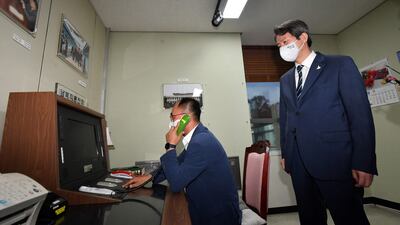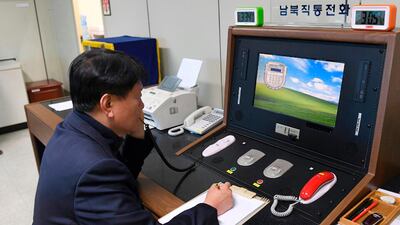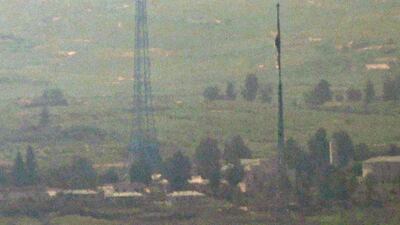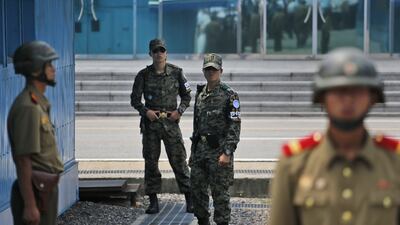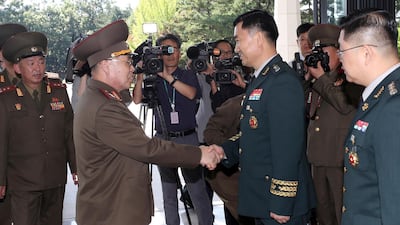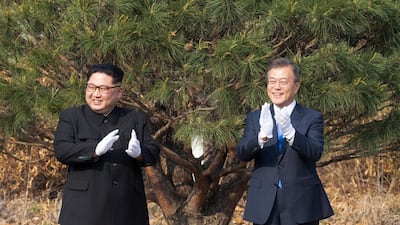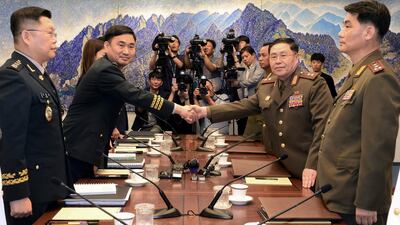North and South Korea, the US and China have agreed in principle to declare a formal end to the Korean War, South Korean President Moon Jae-in said.
He said talks on a formal agreement had not yet begun because of disagreement over North Korea's demands.
North Korea and the US are in a dispute over Pyongyang's nuclear-weapons programme, which Washington says the country has to abandon before any sanctions are lifted. North Korea insists that the US departs the area and lifts sanctions first.
Speaking in the Australian capital Canberra during a four-day visit, Mr Moon said North Korea continued to make these demands.
“Because of that, we are not able to sit down for a discussion or negotiation on the declaration. We hope the talks will be initiated,” he said.
Mr Moon has made engagement with North Korea a key aspect of his presidency and of his foreign-policy agenda. At the UN General Assembly in September, Mr Moon called for a formal end to hostilities.
His speech led Kim Yo-jong, the sister of the North Korean leader and an influential voice in the country, to say the initiative for peace was both an "interesting and good idea".
Mr Moon said he believed it was important to end the “unstable” armistice that has been in place for almost 70 years. He said a peace declaration could improve the prospects for a breakthrough on Pyongyang’s nuclear-weapons programme.
“This is going to be help us start negotiations for denuclearisation and peace … [on] the Korean peninsula,” he said. “This is very important on that front as well.”
The Korean War, which took place from 1950 to 1953, ended with an armistice and without a peace treaty, meaning that the North and South are technically still at war.
